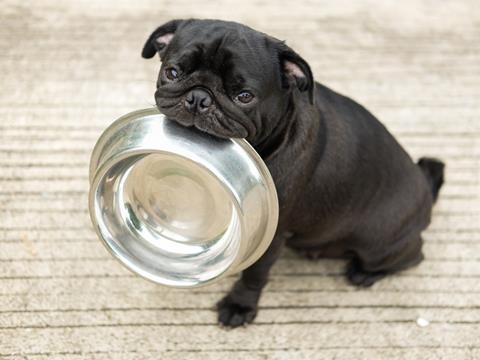
Manufacturers and designers are shaking up standard packaging conventions on all fronts, but what does this look like for pet food packaging? Howard Wright, Executive Creative and Strategic Director EMEA & Canada at Equator Design, directs us towards the trends we should keep an eye on when feeding our furry friends.
In recent years, the pet food industry has witnessed a remarkable evolution not only in the formulation of nutritious meals for our furry companions but also in the way these products are presented to consumers. Pet food packaging has become an integral part of brand identity, sustainability initiatives, and customer convenience. Let’s delve into the exciting trends that are shaping the future of pet food packaging.
Sustainable Packaging
As sustainability continues to be a driving force in consumer choices, pet food manufacturers are embracing eco-friendly packaging solutions. This includes materials like biodegradable plastics, compostable packaging, and recyclable materials. Brands are not only meeting consumer demand for sustainability but also aligning with their own commitment to environmental responsibility.
Transparent and Informative Labelling
Pet owners are increasingly interested in understanding the nutritional content of their pets’ food. Clear and transparent packaging, coupled with detailed labelling, allows consumers to make informed choices about the products they purchase. Brands are including information about ingredients, sourcing, and even the specific health benefits of their pet food.
Innovative Designs for Convenience
Convenience is key, and pet food packaging is reflecting this trend. Resealable bags, single-serve pouches, and easy-pour containers are gaining popularity. These designs not only make it more convenient for pet owners to store and serve the food but also contribute to keeping the product fresh for longer periods.
Personalisation and Customisation
The pet industry has recognised the importance of individuality in pets’ diets. Customised packaging, whether in terms of portion sizes or tailored nutritional formulations, is on the rise. This trend allows pet owners to cater to the specific needs and preferences of their pets, fostering a sense of care and consideration.
Incorporation of Technology
Smart packaging is entering the pet food arena. QR codes and augmented reality features on packaging enable consumers to access additional information, such as feeding guidelines, health tips, and even interactive content. This tech-savvy approach enhances the overall customer experience and engagement.
Bold and Vibrant Designs
Eye-catching and visually appealing packaging designs are becoming increasingly popular. Bold colours, unique shapes, and engaging graphics help products stand out on the shelves and create a lasting impression. Brands are recognising the importance of aesthetics in attracting pet owners and are investing in creative packaging strategies.
Health and Wellness Messaging
Pet owners are increasingly conscious of their pets’ health and well-being. Packaging is now being used as a platform to communicate a brand’s commitment to pet health. Labels highlighting natural ingredients, absence of additives, and other health-related features are becoming commonplace.
The pet food packaging landscape is undergoing a transformative journey, with sustainability, transparency, convenience, personalisation, technology, and aesthetics at its core. As the industry continues to evolve, these trends are not just responding to consumer demands but are also shaping the future of how we care for our beloved pets. The intersection of innovation and responsibility in pet food packaging is not just a trend but a reflection of the evolving relationship between humans and their animal companions.
If you liked this article, you might also enjoy:
The L’Oréal approach to packaging sustainability
The way we talk about plastic needs to change – here’s how to get it right
What steps is Apple taking to make its packaging more sustainable?














No comments yet